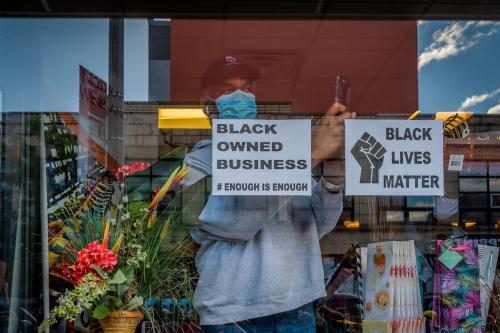This article originally appeared on Bloomberg CityLab
Before the pandemic, small businesses in gentrifying neighborhoods in U.S. cities like Oakland, Miami and Washington, D.C., faced many of the same pressures as residents. Black and Latinx businesses were at particularly high risk of displacement and closure, as their traditional clientele were pushed out of the neighborhood, and residents with different tastes and preferences moved in, along with large chain stores with which small businesses had to compete.
Then Covid-19 hit. And despite speculation to the contrary, the pandemic did not stop gentrification. While the housing market stalled in the early months of the pandemic, by summer 2020, it returned with a vengeance in many already-gentrifying neighborhoods. In fact, the pandemic could be priming some cities for a new and harsher wave than they saw pre-Covid, as federal and local moratoriums on residential and commercial evictions end. And while residential gentrification has been a frequent topic of dinner table, community and policy conversations, commercial gentrification — the force that leads to the displacement of small businesses — has not.
Read the full article here: Small Businesses Are Victims of Gentrification, Too – Bloomberg







Commentary
Businesses Are Victims of Gentrification, Too
Wednesday, May 19, 2021